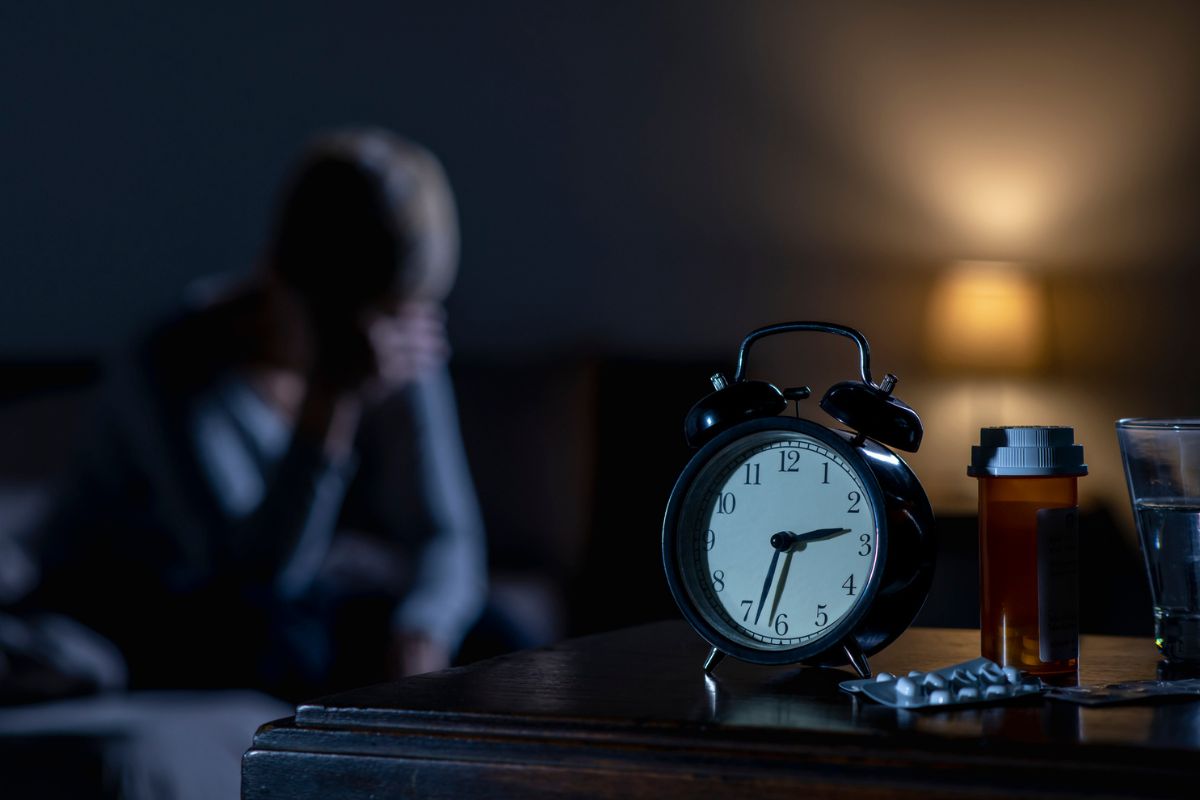An exhaustive, groundbreaking new analysis of the United Kingdom’s Medical Cannabis Registry confirms that cannabis-based medicinal products might improve sleep quality. They might also help to ease anxiety and boost the quality of life in patients wrestling with chronic insomnia.
While the study’s authors found that the treatment appeared to be generally well-tolerated, they also warned caution that their results fall just short of conclusively proving effectiveness. But they add that what they did find out only reinforces the need for clinical trials.
Cannabis, a sleep-aid staple long before researchers ever took a look at it, has emerged more recently as a viable candidate because of its effects on the brain’s endocannabinoid system.
Even so, research targeting sleep problems specifically has been scarce. Most established research has instead focused on other conditions, treating sleep as a secondary consideration.
Inside the Numbers
The new analysis, published in PLOS Mental Health, tracked 124 adults with primary insomnia who received cannabis-based prescriptions through the registry. The study’s patients:
- Failed at least two licensed treatments before qualifying.
- Were, on average, 43 years old.
- Most had a job.
- And more than half – 58% – were already active cannabis users.
The research team followed the patients for up to 18 months, measuring outcomes with multiple patient-reported tools, including the Single-Item Sleep Quality Scale (SQS), the Generalized Anxiety Disorder-7 scale (GAD-7), and the EuroQol five-dimension health questionnaire (EQ-5D-5L).
Abundant Improvements
Patients reported sudden notable improvements in sleep quality.
SQS scores jumped from a baseline average of 2.7 (on a 0–10 scale) to 5.7 after just one month. Gains remained statistically significant through 18 months, though the magnitude of improvement tapered off as the months wore on.
Anxiety symptoms also tumbled dramatically in the first month, while GAD-7 scores fell by nearly by half.
Quality-of-life indicators improved as well, particularly in the pain/discomfort and anxiety/depression domains.
It’s also worth mentioning that older patients (those over 50) were more likely to achieve meaningful improvements in sleep. And moderate THC doses appeared linked to fewer anxiety symptoms.
Some Concerns, A Lot of Hope
The researchers added that adverse events appeared to be relatively uncommon. Less than 10% of the participants reported side effects, and most of those were mild to moderate. Fatigue, dry mouth, dizziness, and paradoxically, worsening insomnia, seemed to be the most frequent. And the team recorded no disabling or life-threatening events.
Even so, the data pointed to a potential tolerance effect. As patients’ prescribed doses of THC and CBD crept up over time, the benefits faded somewhat.
“Participants may have developed tolerance to the therapeutic effects,” the authors noted, hinting that escalating doses could temper long-term gains.
For now, cannabis-based medicines appear to offer meaningful – if temporary – relief for some insomnia patients. But whether these benefits endure, and the best approach to balancing dosage with long-term safety, remain untested.
“The findings indicate a promising association,” the researchers concluded, “but high-quality randomized trials are essential to establish the long-term efficacy and safety of cannabis-based medicinal products for insomnia.”
Further Reading
Scientists Solve Marijuana Munchies Mystery
Research Suggests CBD Pain Relief is a Myth
Growing Interest in Cannabinoids for PTSD Yields Mixed Results



